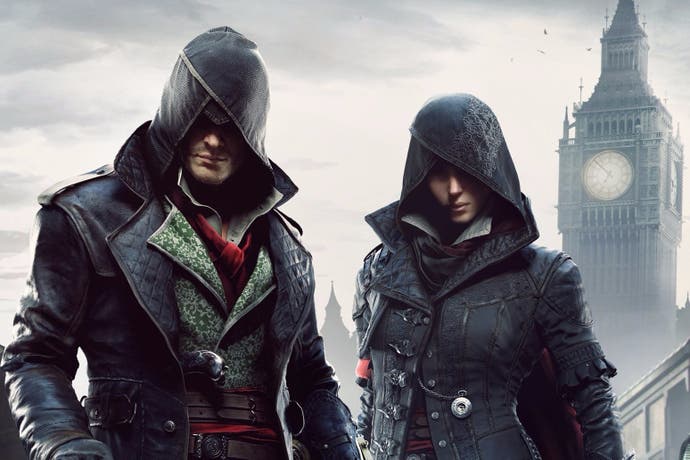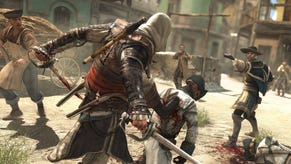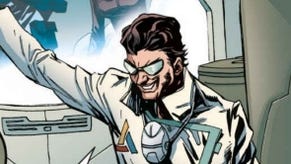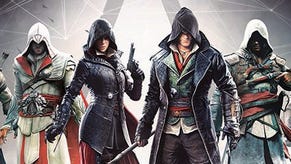Assassin's Creed Syndicate review
Capital.
For a series focused on history, Syndicate feels refreshingly free from Assassin's Creed's own. Plenty has already been written about Assassin's Creed Unity, last year's underwhelming entry in the series. The intense negative reaction upon Unity's initial release lingered through its slow cycle of post-launch patches, to the extent that the game's season pass was cancelled and its major add-on was offered free as a result. The whole episode left such an impact on the franchise that any discussion about Assassin's Creed must currently acknowledge it, and any expectations for Syndicate's subsequent trip to Victorian London must be matched up to what came before. Thankfully, after Syndicate, I think Assassin's Creed can finally move on.
First things first, here are all the things Assassin's Creed doesn't have this year. There's no bolted on multiplayer mode or any co-op options. It doesn't have any connections to a broken web service. It doesn't require you to play a companion app to acquire everything in the game. It's like a human being actually sat down to design a game with the simple requirement that it felt fun, rather than it being a £50 experience designed by a committee to link up a web of interconnected transmedia nodes. It's a huge relief. Next, here are all the things Syndicate adds back to the series' sandbox - simple things such as picking up and hiding bodies, whistling to attract attention - as well as several new methods of traversal to reinvigorate the game's parkour gameplay.
Syndicate's new grappling hook - a brazen but welcome lift from Rocksteady's Arkham games - streamlines your rooftop exploration and stretches it out over vast distances. It lets you quickly zip between the towers of the Palace of Westminster or rappel down from St Paul's and stop midway to drop vertically onto the heads of two Templar targets. Alternatively, it works as a faster connection between two buildings during a chase - there's no need to find a rope linking rooftops or climb down from your stalking zone when tracking targets. Assassination missions become cat and mouse affairs where you can zip in and out of sight, losing your pursuers only to drop down and silently snuff out another.
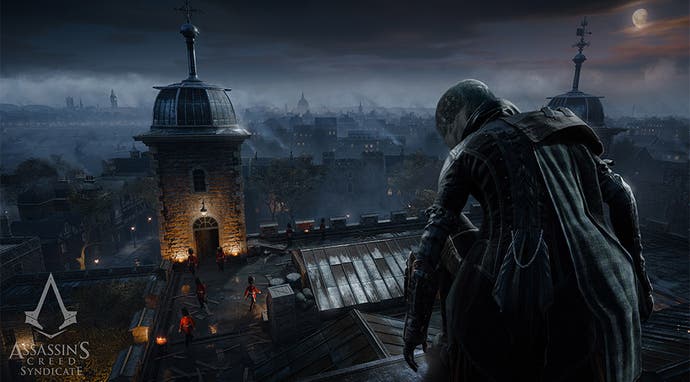
Then there are the new horse and carts, which give you a fast and fun method of moving larger distances without a lengthy run or a long loading screen while you fast travel. Vehicles have been well integrated into the game's various other systems too, acting as a refuge from pursuers, a mobile firing platform for a shoot out with adversaries, a police box for bundling captured goons and a source of income if you opt to enter yourself in races or steal other vehicles in heists. Yes, Assassins Creed was designed to be about stealth, but if the brilliant seafaring Black Flag taught the series anything it was that the option for new gameplay can disrupt the series' aging formula in effective and memorable ways. Just as you could watch targets sail off in Black Flag's boats, Syndicate allows your enemies to disappear in Hansom cabs and atop carts. The resulting chase is different, a little simpler, but can be just as much fun - the naval cannons of Black Flag replaced by an upgradable set of ramming manoeuvres to barge your enemies off the road.
Side-missions and objectives have been restructured to give you more reasons to engage with them. Many are now tied to the game's bulging cast of historical characters, meaning you get to hang out with such as Dickens, Darwin, Nightingale, Marx and a young Conan Doyle. Many contacts now have reputation gauges with tiers of powerful rewards - new gear and schematics - which unlock if you continue to engage with their quests. Other open world activities now calm individual areas of the map's half dozen main boroughs, slowly pushing back Templar influence until you trigger a boss for final control, making London a real fight to completely conquer.
Speaking of London, Syndicate's gangs are an inventive replacement for the series' early Brotherhood mechanics, letting you call upon nearby groups of friendly gang members as you slowly build their ranks. Their availability and skillsets improve as you spread your influence across more of the game's overworld, then by buffing their abilities through Syndicate's London skill tree while nerfing those of your rival gang (who are naturally aligned with those dastardly Templars). Syndicate's endgame sees you able to call forth monstrously powerful henchmen that appear with a volley of revolver fire, or via powerful carts ready to run down your foes. The game also lets allies climb aboard any vehicle you are driving or commandeer others nearby to join you, riding shotgun then hopping out at your destination to ensure you turn up with a powerful posse.
Your gang is the brainchild of the pushy male protagonist Jacob Frye, and is part of his plans to restore the Assassins' fallen London Brotherhood. He is balanced out by the fierce but more thoughtful personality of his twin sister Evie, the game's second protagonist whose story focuses on another of the series' all-powerful artefacts. As usual, you're trying to track down the macguffin before the Templars get their hands on it. Naturally, Jacob's pursuit of restoring the London Assassins and Evie's pursuit of the artefact rub up against each other, and there's a neat dynamic between the two that anyone with a sibling will recognise. Switching between Jacob and Evie for each of their main missions (either are playable in the open world) also acts as a great palate cleanser when Jacob's own attitude starts to get a little too much.
But Evie is often forced to go in afterwards and mop up Jacob's mess, while her storyline only gives her one main Templar target to track and take down. It leaves her feeling like the lesser-used of the two, even if story-wise there are merits in giving her one long objective to work towards. Evie takes a complete backseat for one of the game's late sequences, which in a first for Assassin's Creed can be played earlier if you have conquered a number of London's boroughs. This sequence's story is focused entirely on Jacob and his relationship to another character, and its own walled off narrative heads off in an engrossing tangent. The slightly uneven weighting given to the brother and sister is however balanced out somewhat by the inclusion of another set of missions in another slice of London which is worth discovering unspoiled.
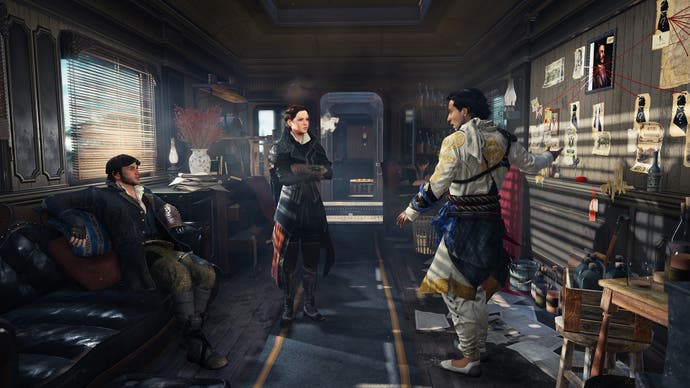
The impact of London itself cannot be understated, especially to anyone who is familiar with the city themselves. But, more than Paris, colonial Boston, Constantinople or any other recent creation, it is a space that will feel at least partly familiar to the vast majority of players. There's a genuine thrill to padding around the carpeted floors of Buckingham Palace or scaling the hands of Big Ben's clock tower. By far, it is the best city that Ubisoft has created since Brotherhood's Rome. It all looks the part, too, with none of the problems that plagued the series last year. Syndicate's frame-rate is smooth and any NPC quirks are now few and far between. I saw only one real graphical bug in over 35 hours of play, although occasionally I'd have to reset a mission if something went awry with the game's mission sandbox. For example, one time I was escorting Alexander Graham-Bell safely across a street. For some reason, a ruckus had occurred off-screen which caused the police to charge in, knocking down and killing poor AGB, forcing a mission restart. But such moments are few and far between.
This year has seen several upgrades to the series' annual sandbox without any of Unity's deep technical issues. What a difference a year makes. Despite its advances, and because of Unity, it is easy to see Syndicate still getting a less than enthusiastic response than perhaps it should. If there was ever a good argument for the series to take a year off, to make sure that it never releases again before it is ready, that more time is better than the company's bottom line, then the last couple of Assassin's Creed titles are it. But hopefully Syndicate's legacy is its memorable cast of characters, its entertaining script and - most importantly - how it manages to recapture the series' sense of fun. Its success is a testament to the work of Ubisoft Quebec, which found itself in charge of its first Assassin's Creed game at a critical point for the series. Thankfully, in the game's leading duo, in its new London playground and in the greater sense of freedom that Syndicate brings, it delivers.
Our guide to finding every music box in Assassin's Creed Syndicate is live now.
